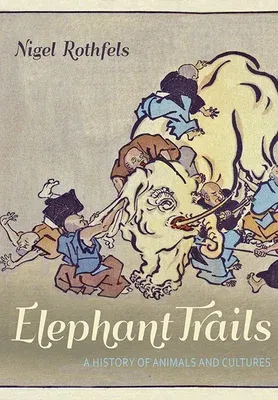Why have elephants--and our preconceptions about them--been central to
so much of human thought?
From prehistoric cave drawings in Europe and ancient rock art in Africa
and India to burning pyres of confiscated tusks, our thoughts about
elephants tell a story of human history. In Elephant Trails, Nigel
Rothfels argues that, over millennia, we have made elephants into both
monsters and miracles as ways to understand them but also as ways to
understand ourselves.
Drawing on a broad range of sources, including municipal documents, zoo
records, museum collections, and encounters with people who have lived
with elephants, Rothfels seeks out the origins of our contemporary ideas
about an animal that has been central to so much of human thought. He
explains how notions that have been associated with elephants for
centuries--that they are exceptionally wise, deeply emotional, and have
a special understanding of death; that they never forget, are beloved of
the gods, and suffer unusually in captivity; and even that they are
afraid of mice--all tell part of the story of these amazing beings.
Exploring the history of a skull in a museum, a photograph of an
elephant walking through the American South in the early twentieth
century, the debate about the quality of life of a famous elephant in a
zoo, and the accounts of elephant hunters, Rothfels demonstrates that
elephants are not what we think they are--and they never have been.
Elephant Trails is a compelling portrait of what the author terms "our
elephant."

